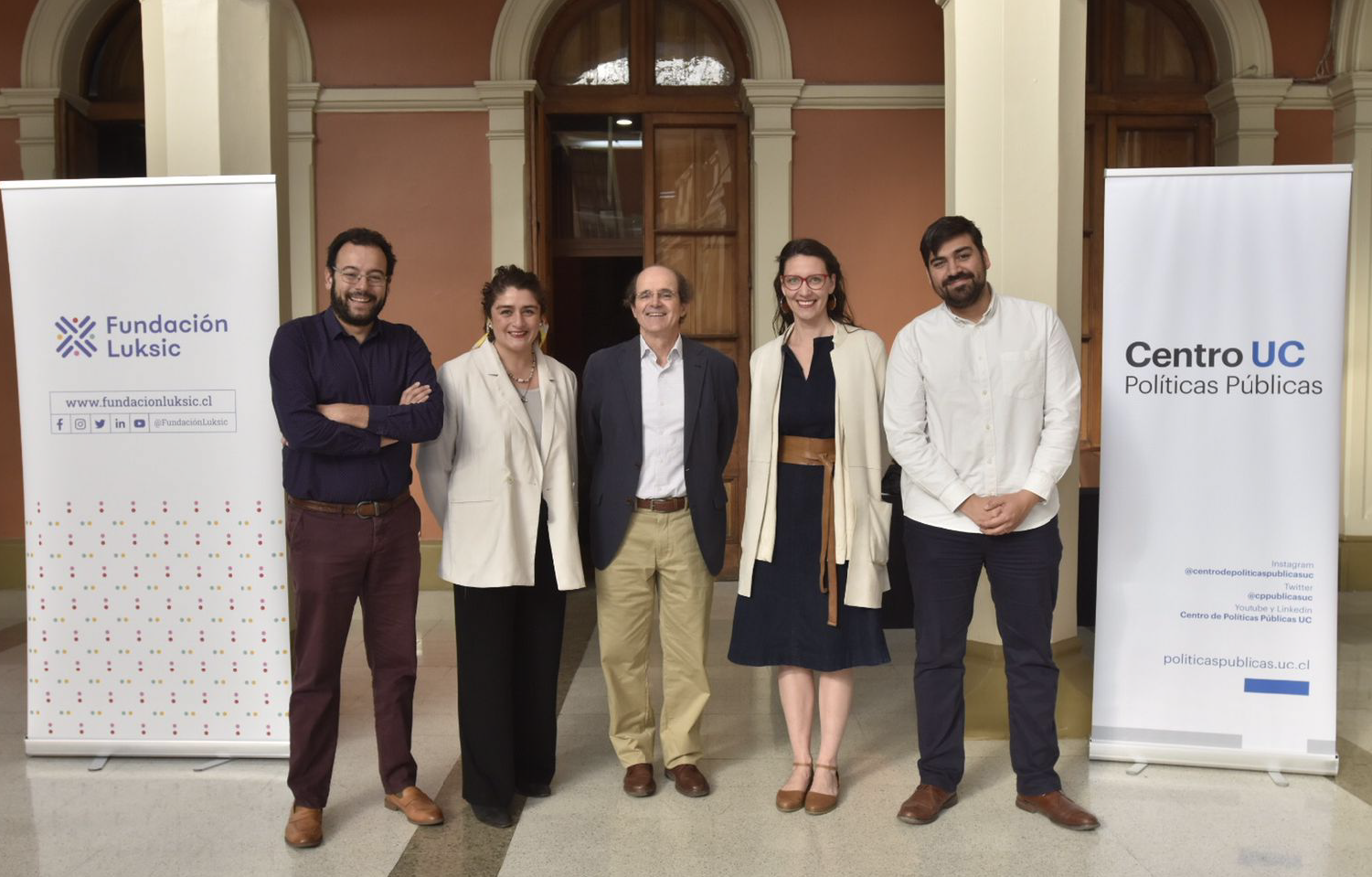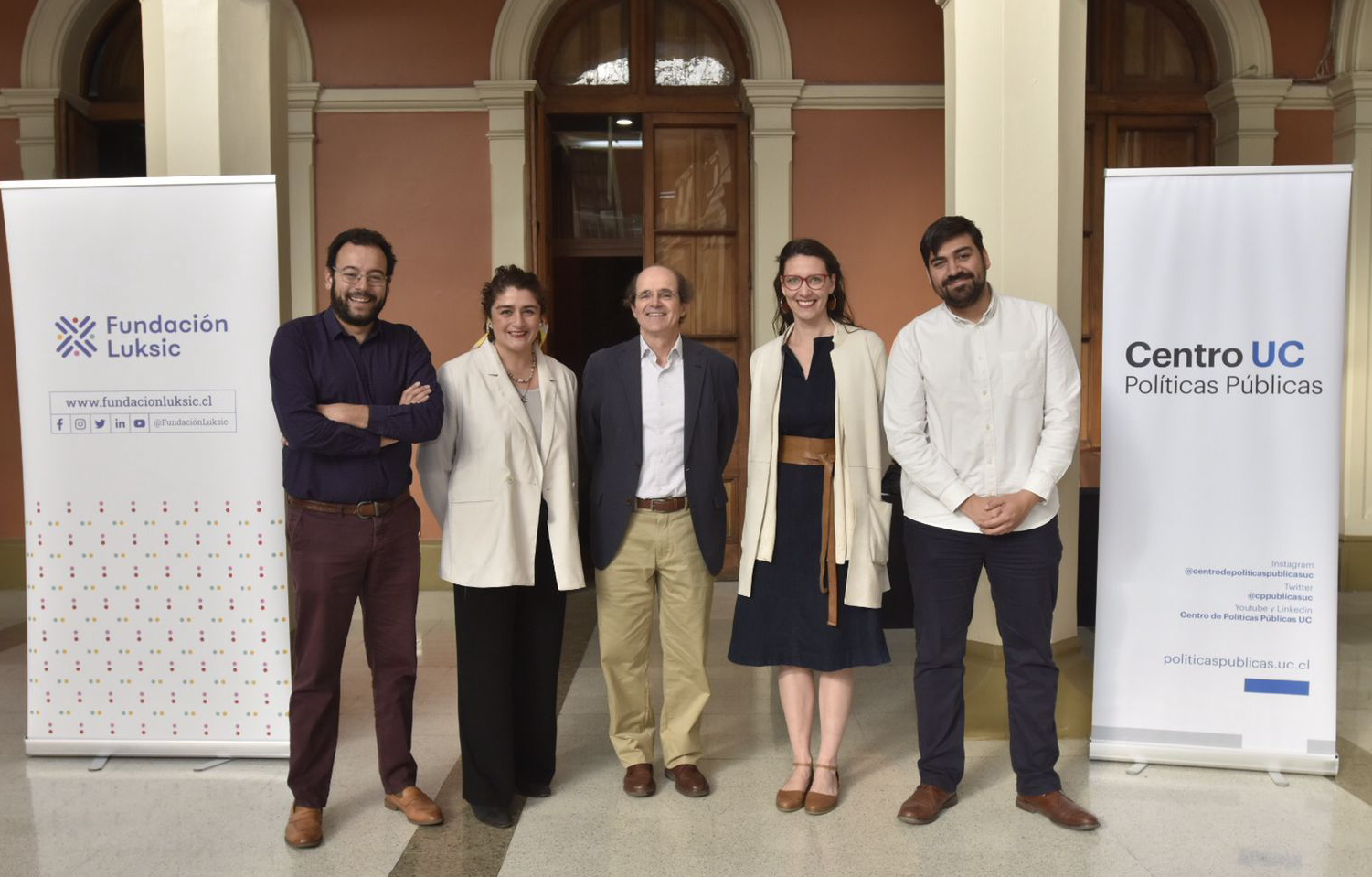The forum highlighted the importance of adequately designing, monitoring and evaluating the programs implemented by civil society organizations in order to generate significant and consistent social impacts in the long term. The first presentation was given by Ignacio Irarrázaval, director of the UC Center for Public Policy, who spoke about the current context of civil society organizations and the challenges they face in terms of program evaluation. “We have to move towards a culture of evaluation, this is not a residual activity, we have to put it at the center of our actions, because it can happen that our role is questioned”, reflected Irarrázaval.
For her part, Macarena Cea, director of the Evaluation and Measurement area of the Luksic Foundation, generated a space for shared knowledge, commenting on concrete cases of good evaluation practices, with the aim that smaller non-profit organizations that do not have sufficient human and economic resources can begin an internal reflection on the evaluation of their initiatives.
“The main objective of evaluation and measurement processes is to ensure the quality of social programs. It is an ethical duty of the organizations, since it implies offering effective solutions to the problems identified from a pertinent design and implementation. A contribution of the evaluation processes is to make available the lessons learned and experiences obtained to other organizations that may be of interest to them. In addition, in the case of the generation of evidence, this will be made available as a public good to the various actors in the ecosystem,” explained Cea.
Panel discussion
Hans Rosenkranz, executive director of the Community of Solidarity Organizations, a group that brings together more than 240 civil society organizations, was in charge of moderating this space. On the occasion, he pointed out that it is necessary to “generate awareness in the ecosystem of donors, constituents and foundations that it is extremely necessary to allocate resources for evaluation. This evaluation must necessarily be done from the users’ perspective. It is not something to be desired, but should be an ethical imperative. It is crucial to incorporate their vision at all times”.
The panel included the participation of Javiera Troncoso, Public Policy Advisor of the United Nations Development Program (UNDP), who stated that “evaluations of social programs improve the reflection processes of organizations and have a good potential to contribute to financial sustainability, the fulfillment of their institutional mission and to generate impact on their environment”.
Cristián Crespo, Deputy Director of Applied Research of the UC Center for Public Policy, pointed out that “carrying out a complete evaluation cycle has more value than the sum of unconnected evaluations. With a complete cycle there is a greater possibility of achieving impact”.
Workshop for CSOs
The Luksic Foundation and the UC Center for Public Policy announced the development of a free online course on design, monitoring and evaluation of social programs for managers and professionals of civil society organizations, to be held during the first semester of 2023. The course will have 30 places, will last 16 chronological hours and will be taught by Cristián Crespo, from the Center for Public Policy and Macarena Cea, from the Luksic Foundation.
Revisa el seminario aquí:


